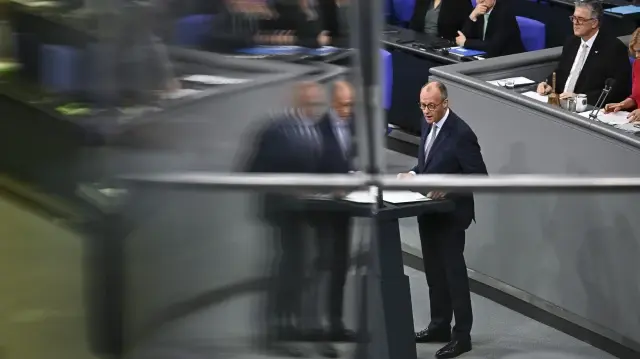German Chancellor Friedrich Merz has sparked a major political controversy within his coalition government after making remarks that appeared to link migrants to safety and crime issues in German cities. His comments have drawn strong criticism from the Social Democratic Party (SPD), his junior coalition partner, in what analysts are calling one of the most serious public disputes since the coalition was formed.
In a recent speech in Potsdam, Merz addressed the rise of the far-right Alternative for Germany (AfD) and defended his government’s tough stance on migration. He described irregular migrants as a “problem in the cityscape” and pledged to accelerate deportations. When questioned by reporters, Merz reinforced his position, urging people to “ask your children, ask your daughters” about safety at night — comments that have since triggered widespread debate.
The SPD Secretary General Tim Klussendorf sharply rebuked Merz, accusing him of using divisive rhetoric that unfairly targets migrants and undermines public trust. “We certainly have problems in Germany regarding crime and security,” Klussendorf said, “but constantly reducing these complex issues to migration is wrong and harmful. The Chancellor should be setting a more responsible tone.”
Members of the Green Party and the Left Party also condemned the remarks, arguing that Merz’s language echoes far-right talking points. Germany’s Integration Commissioner, Natalie Pawlik, cautioned that such comments only deepen social divides and risk giving legitimacy to extremist movements.
Public reaction has been equally strong. Over the weekend, an estimated 5,000 demonstrators gathered in Berlin, demanding an apology from Merz and accusing him of stigmatizing migrants. Protesters carried signs calling for “respect and inclusion,” while others urged the government to focus on policies that promote integration rather than exclusion.
Despite the backlash, Merz has stood by his remarks, claiming they reflect genuine public concerns about safety and the effectiveness of migration policies. Political observers, however, warn that the dispute could strain the unity of the coalition government and further polarize Germany’s political landscape ahead of regional elections.
The controversy highlights the delicate balance between addressing migration challenges and maintaining social cohesion in a country still struggling with debates over identity, security, and integration.

